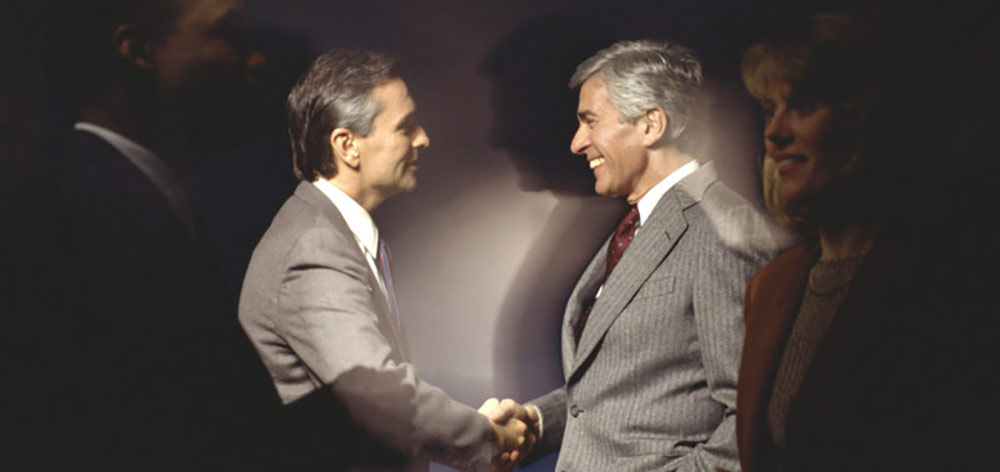As we process the events of the last couple of months, what observations should we make? And, based on those, what actions should we take going forward?
While we can make lots of observations about the political arena and the media, in this article we’ll focus on the impact of the pandemic on Christian businesses.
So, the question at hand is this: What can Christian businesses people learn from the crisis – and the reaction to it — and what modifications should we make to be better equipped for life on the other side? While I make no claims to be a futurist, nor to have a word of prophecy, I am a thoughtful guy who has been through these kinds of economic calamities a few times in the past and have some observations. So, here’s one guy’s suggestions.
Observation 1:
The world has become acutely aware of how incredibly important small businesses are to the health and wealth being of the North American economy and the millions of people touched and employed by them.
Within days of the shutdown, we were seeing laid off employees panic, employers fight to keep the business intact, and the ebb and flow of commerce wilt like a flower in the hot sun. Every media outlet was running stories about the impact of some small business on the employees, owners, customers, and vendors. All at once, the world became more acutely aware of the importance of small businesses.
Compare the impact of small businesses shutting down with the impact of churches shutting their doors, and it is no wonder why the Lord chose the marketplace and business as His primary venue to meet and relate to mankind. (1)
When the local congregation ceased it’s Sunday worship services, congregants missed a couple of hours of activity on Sunday. When their employer shut down, their livelihood and the well-being of their families were suddenly and urgently at risk.
There is no comparison between the impact of the two types of organizations. Small businesses are today, as in Biblical times, the fundamental social, spiritual, and economic units of society.
Modification 1:
If you haven’t seen your business as a ministry, this should cause you to take a different perspective. Your business is important – way beyond just a means of making a living – although that, by itself, is incredibly important for you and your employees and suppliers. Above and beyond the economic security that your business provides, it provides a social connection to people who have much in common. People gain a sense of identity and purpose from their employment. It provides an emotional connection to something bigger and more stable than a lot of individual lives. And it brings with it a weightiness and validity for which most people hunger.
The biggest change may be in your view of your role. It’s time to see your business as the ministry it is, to see yourself as the pastor of that ministry, and to step up and assume the role as the leader of a powerful Kingdom entity.
It could well be that one of the effects of the crisis is to unleash the pent-up power of Christian businesses throughout the world. As I said in The Good Book on Business, if Christian businesspeople took their role as ministers of business seriously, we could change the world in ten years. (2)
Observation 2:
The world is going to be different when it begins to come out of lock-down.
Some companies and organizations are going to be stronger, some weaker, and some no longer existent. Far more people are going to be using remote technologies to communicate; the government will be intruding into our lives in ways which would have been unthinkable a few months ago; some industries will be transformed.
The list can go on and on. One of our challenges is to accurately discern those changes that will impact our communities and businesses.
Modification 2:
The likelihood of picking up exactly we left off and doing business without any significant changes is remote. We need to be ahead of the curve, accurately discerning the changes we see, and then modifying our processes, systems, and people to take advantage of them.
In my world of B2B sales, for example, I expect that a significant number of customers will continue to use the remote communications technologies that were forced on them by the lockdown. Field salespeople will need to adapt and master the art of remote selling. Not an easy transition for some people. Companies who want to lead on the other side of the lockdown will be arranging for training and sifting through their sales team to identify those who can adapt, and then considering alternate roles to those who can’t.
Those business leaders who really want to do this right ought to convene, right now, a brainstorming session to identify the changes that will impact your business and chart a list of possible modifications to take advantage of them. See my free video: https://www.thebiblicalbusiness.com/once-in-a-lifetime-webinar/
Observation 3:
There is, within many Christian businesses, an untapped resource for impacting their communities and markets in novel ways.
The news is full of small businesses that have marshaled their resources to provide some valuable service. Whether it’s making masks, delivering food, or entertaining people locked away inside their homes, every day we see examples of some creative way small businesses are stepping up.
If ever there was a graphic example of the untapped power of small businesses – and Christian businesses specifically – to impact the community, this is it.
The extent of this is probably temporary. When, and if, life goes back to something approaching normal, the slack that small businesses have in time and resources will go away, as will the obvious opportunities to serve.
Modification 3:
What if, instead of thinking of opportunities to serve as a one-off occasioned by a world-wide pandemic, Christian businesspeople gave time and effort to use their resources of time, manpower, expertise, etc., in a reduced, but ongoing outreach effort?
As you begin to return to revenue-generating operations, why not set aside some time to brainstorm this question: How can we use our unique blend of people, talent, expertise, time, and money to serve the community in an on-going effort? What can we do, above and beyond the products and services we create, that will bless our markets and our communities?
Pandemics don’t come along every day. Both the pandemic and our reactions to it will usher in once-in-a-century changes. The prudent Christian businessperson will see God’s hand in this and step up to lead his organizations to greater impact and significance in the Kingdom.
(1) The Good Book on Business, Chapter Two.
(2) The Good Book on Business, Chapter Thirteen.



Recent Comments